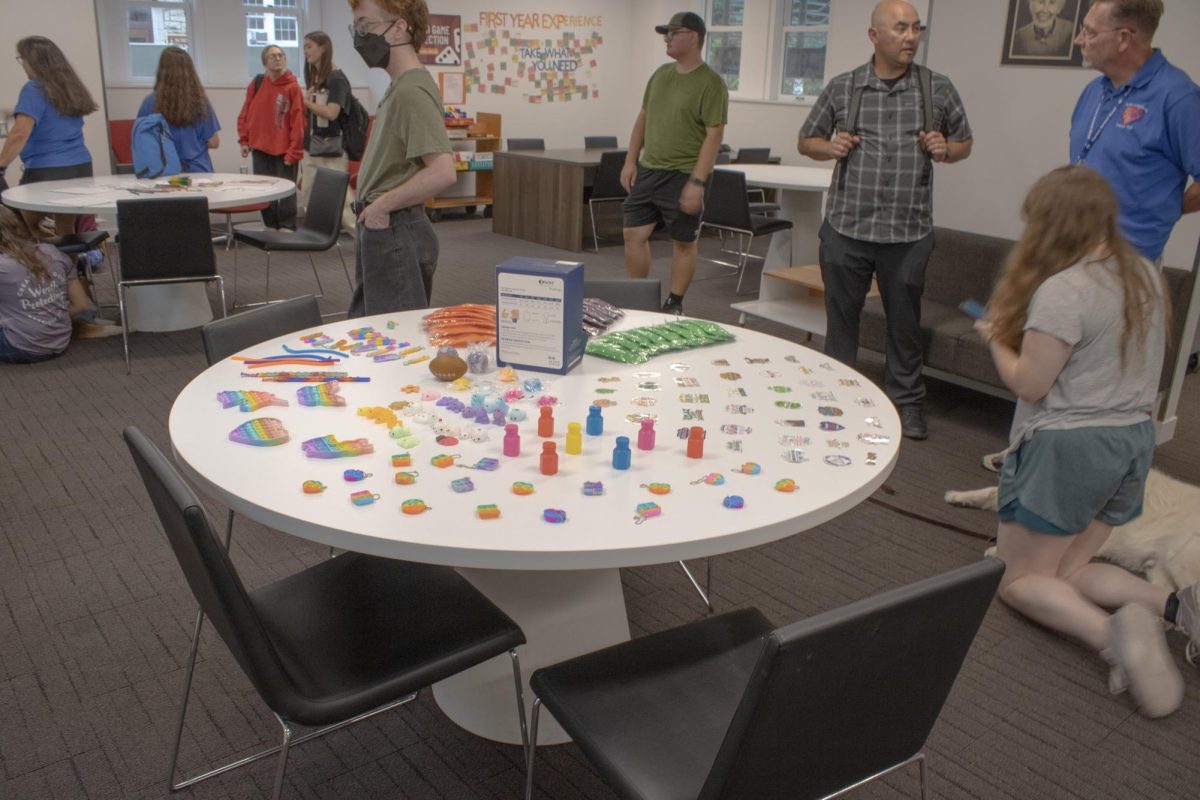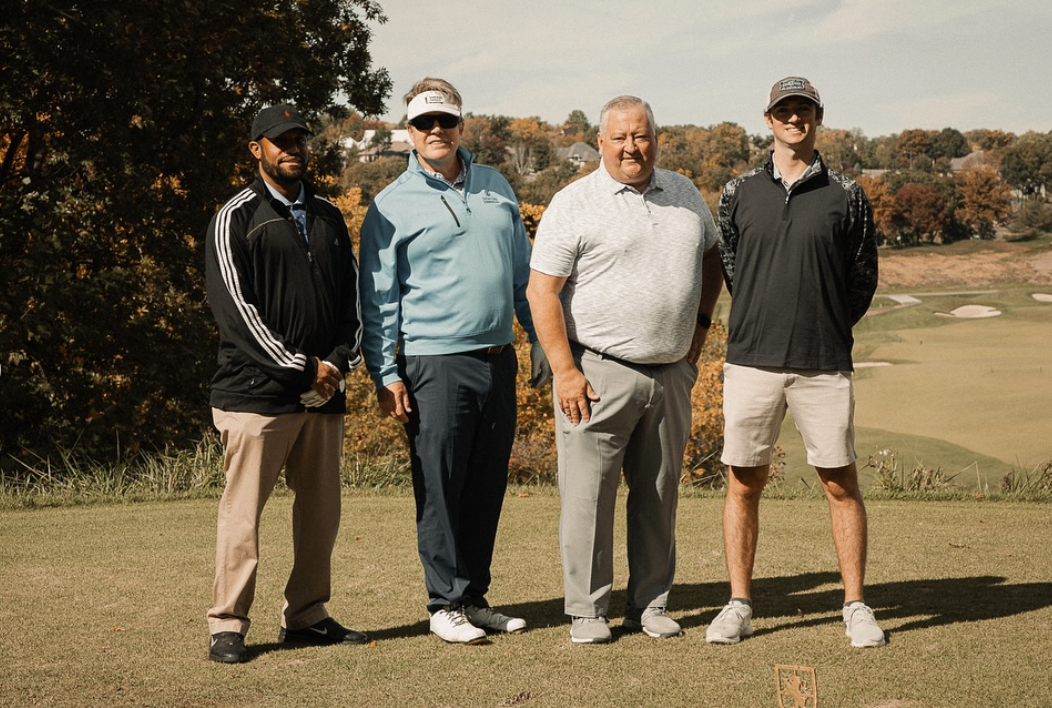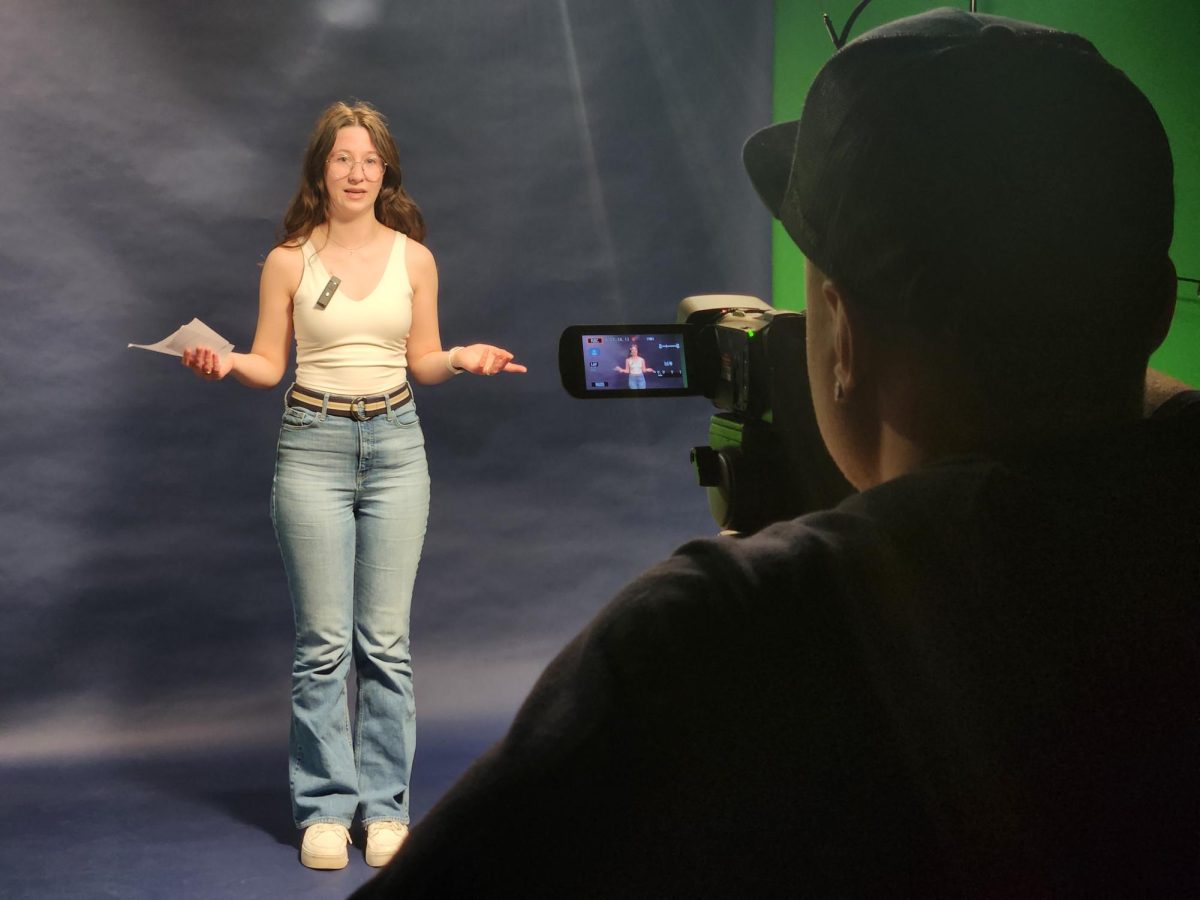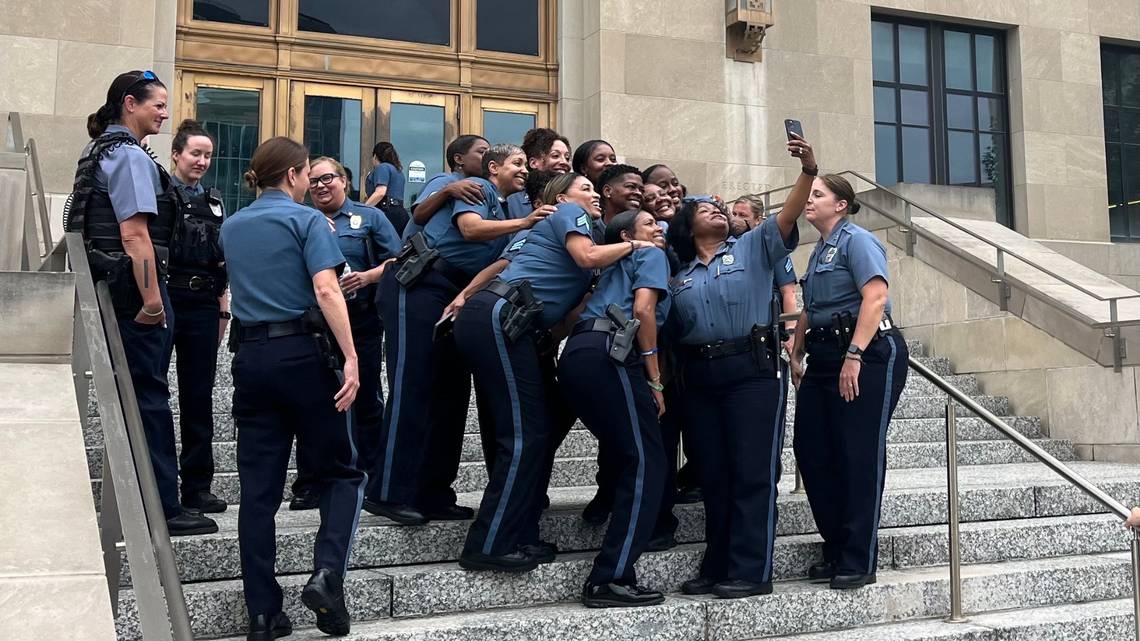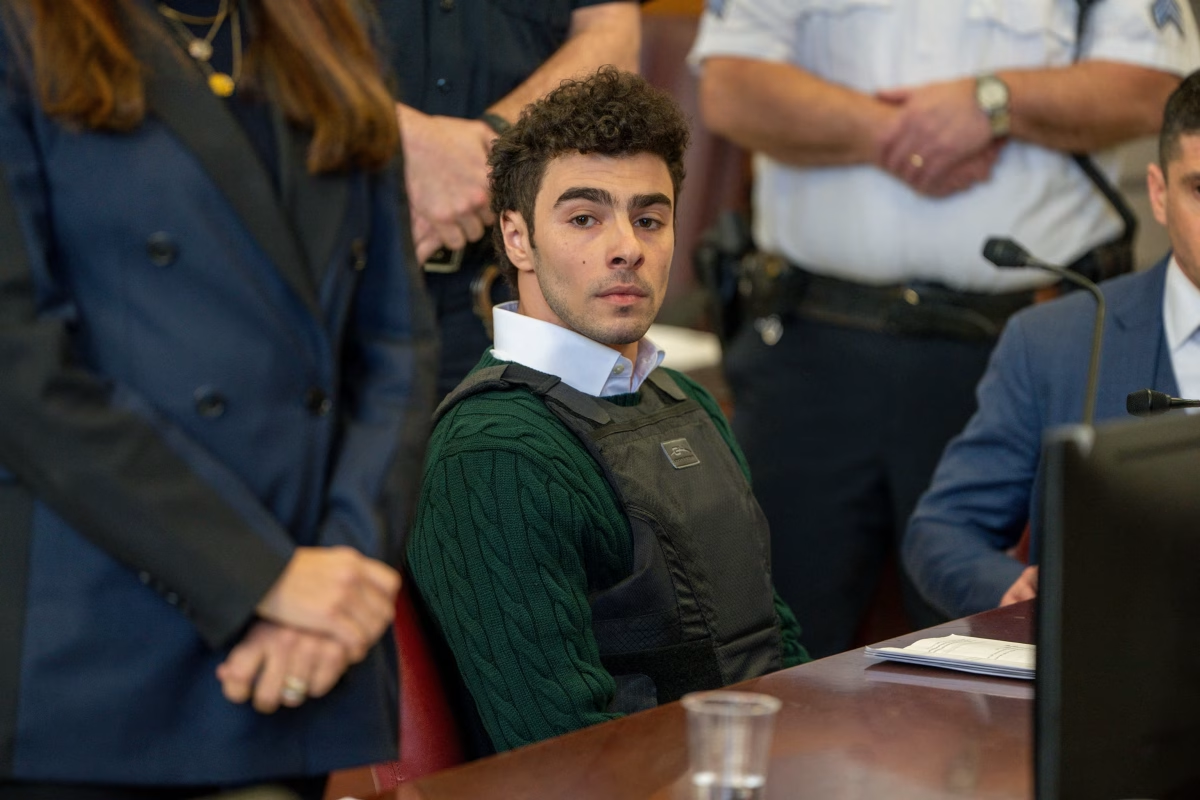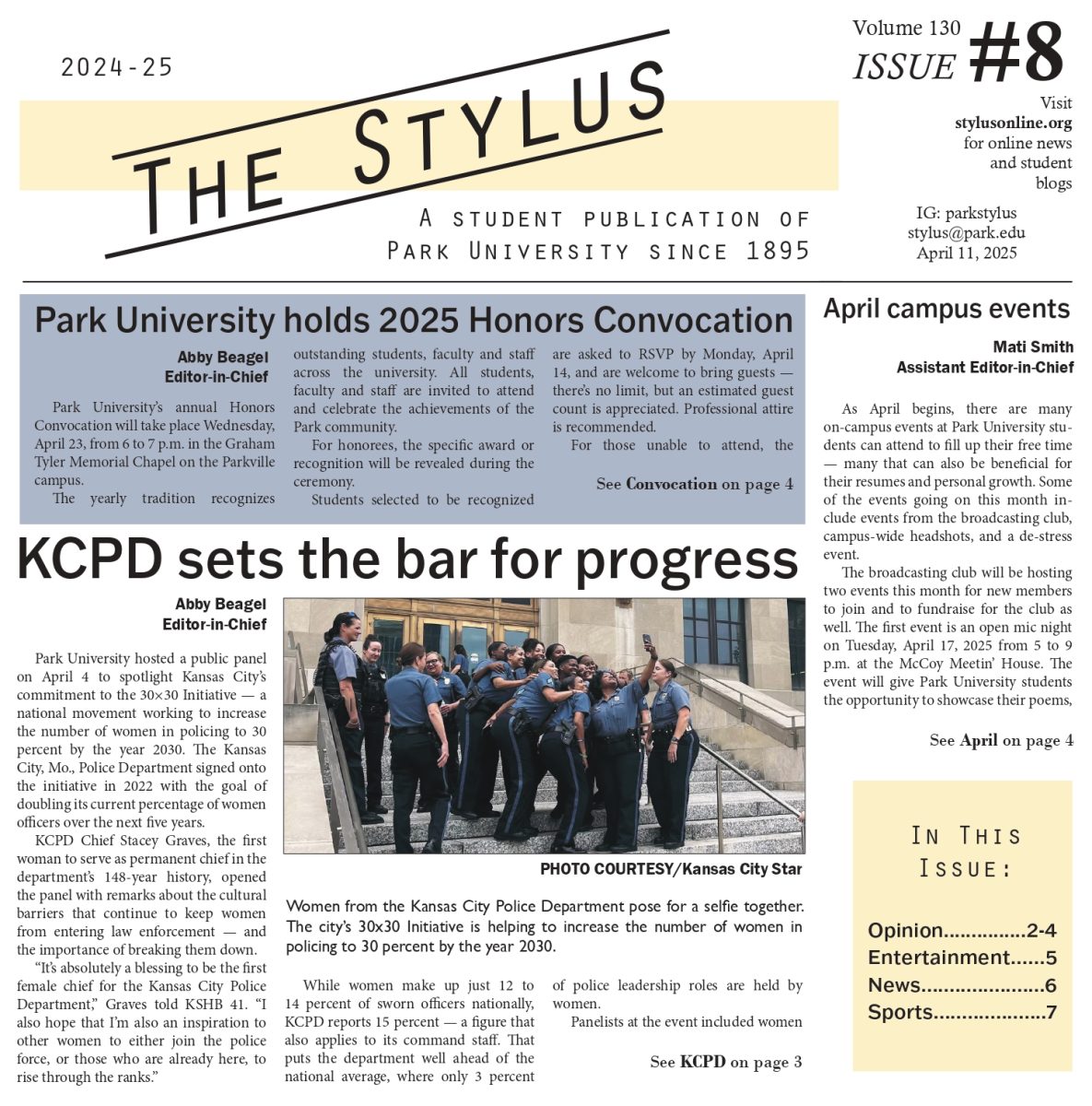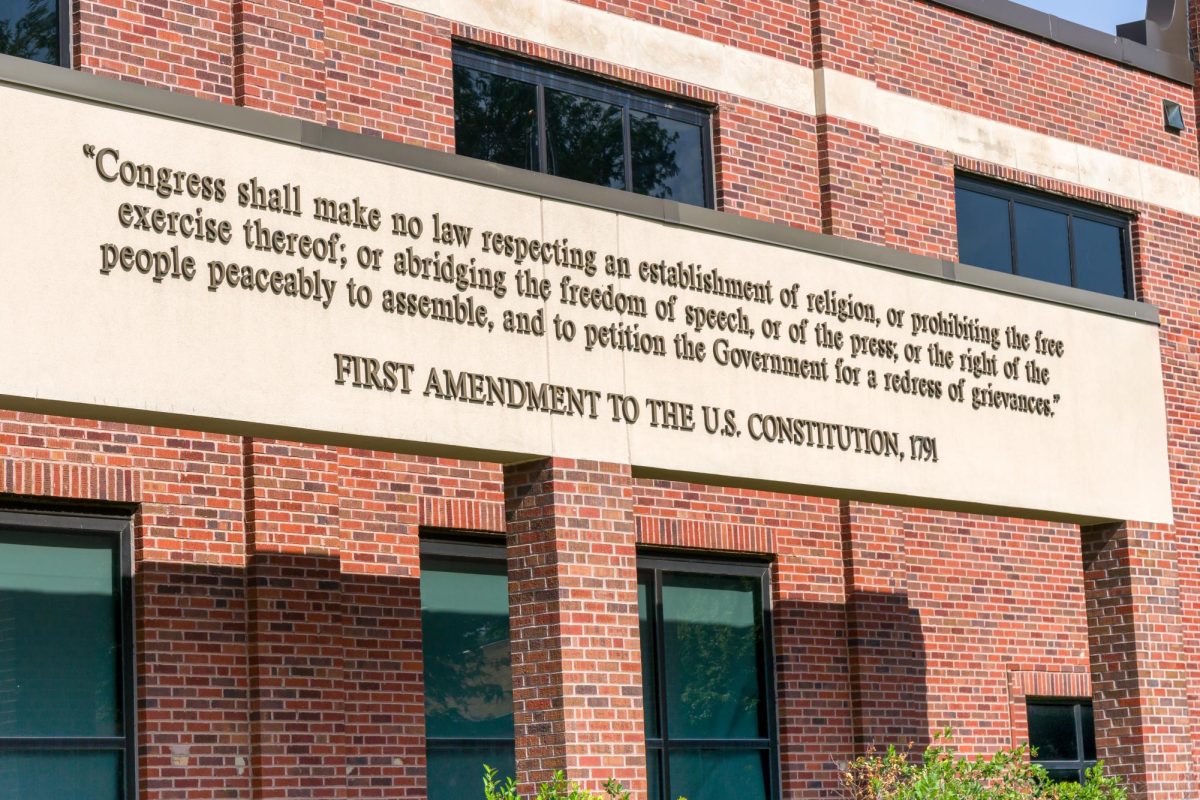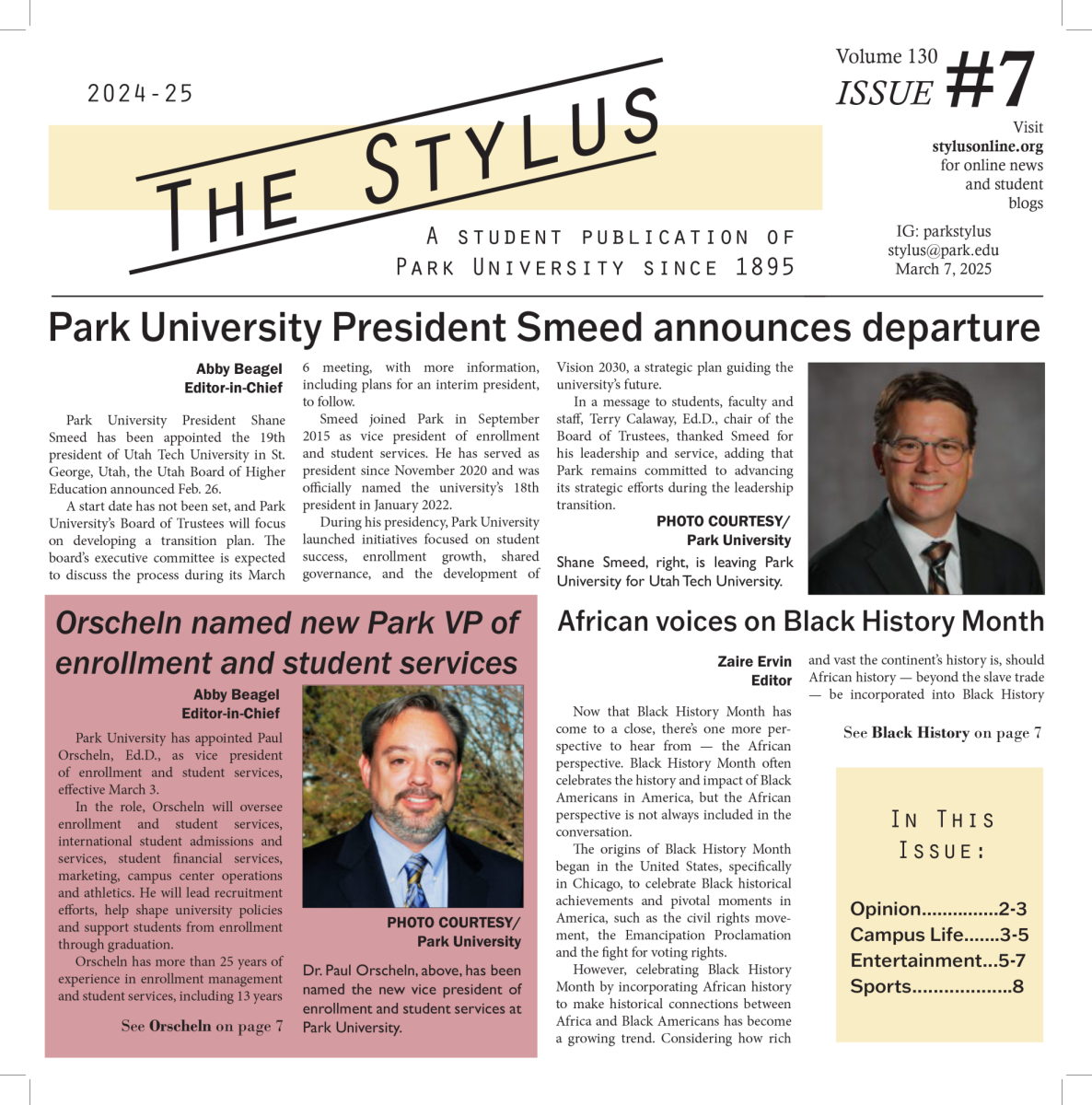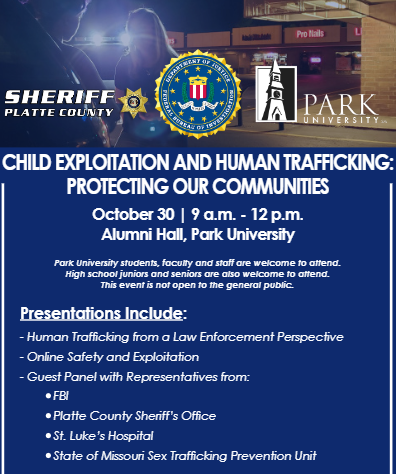
On Oct. 30, 2024, Park University held a powerful seminar, “Child Exploitation and Human Trafficking: Protecting Our Communities.” From 9 a.m. to noon, students, faculty, staff, and even some high school juniors and seniors gathered in Alumni Hall to hear from experts who are fighting this issue every day. With representatives from local and federal agencies, healthcare, and state prevention units, the event covered real, eye-opening details about the realities of human trafficking—and the steps we can take to protect our communities. Due to the sensitive nature of the work and ongoing investigations, individual speakers will not be named in this coverage.
Human Trafficking from a Law Enforcement Perspective
The seminar opened with a presentation on human trafficking from a law enforcement perspective, given by an FBI officer experienced in handling these complex cases. One of the first things the speaker mentioned was the immense difficulty in identifying and investigating trafficking cases. According to the officer, traffickers exert psychological control over their victims, isolating them and instilling fear to keep them compliant. The officer explained that victims often remain silent not just out of fear of their traffickers but due to feelings of shame and isolation—barriers that make it incredibly challenging for law enforcement to detect and help them.
The officer described how traffickers are skilled at creating an illusion of dependency, making victims feel as though they have no other options. This manipulation, the speaker noted, can be powerful enough that victims may defend or hide their traffickers out of misplaced loyalty or fear of retaliation. These circumstances complicate investigations, which often rely on small, fragmented pieces of information. Community tips play a big role here, the officer stressed, pointing out that even minor suspicions can be valuable. “It could be someone noticing a teenager who never seems to leave a certain home or someone who looks unusually distressed while shopping,” they said. These observations, though seeming small, can give starting points that lead to uncovering larger trafficking operations.
The speaker explained that making progress on trafficking cases requires a dual effort between local law enforcement, federal agencies, and the community. The officer shared examples of past cases that took months or even years to crack because there is rarely a clear-cut trail of evidence. They discussed how law enforcement has to piece together information from various sources—ranging from surveillance footage to testimonies and even social media activity. I remember feeling struck by the officer’s honesty about how difficult it is to bring a trafficker to justice without community awareness and support.
Online Safety and Exploitation
The next presentation, “Online Safety and Exploitation,” discussed how common online exploitation has become, particularly on social media and gaming platforms. The speaker, who has extensive experience in youth digital safety, emphasized that young people are some of the most vulnerable users online. They explained that predators exploit these platforms by posing as peers, friends, or even romantic interests to connect with young people, sometimes creating fake profiles to lure kids into a sense of trust.
The speaker shared disturbing insights about how quickly these interactions can turn harmful. With just a few messages, predators may begin asking children for personal details or inappropriate photos. The statistics were chilling: cases of online grooming are not only affecting young girls but increasingly young boys as well, a reality that surprised many of us listening. Many of these victims who might feel embarrassed or ashamed to report these situations, sometimes suffer in silence. Tragically, some victims have felt so trapped and isolated that they’ve resorted to suicide.
This discussion emphasized the need for adults to actively monitor online interactions. The speaker recommended that parents and guardians create an open dialogue with their children and familiarize themselves with red flags like new online “friends” who seem too invested in their lives, ask to meet in person, or even just try to take conversations to different platforms such as Snapchat or Kik. By spotting these behaviors early, families can prevent interactions from escalating and provide an environment for their children to speak up. The urgency with which the speaker presented these issues made it clear, in today’s digital age, online safety isn’t just a conversation; it’s a critical form of protection.
Guest Panel
The heart of the seminar was the guest panel, which included representatives from the FBI, Platte County Sheriff’s Office, St. Luke’s Hospital, and the State of Missouri’s Sex Trafficking Prevention Unit. Each speaker brought their own unique insights:
- FBI: The FBI representative spoke about the necessity of collaboration, sharing how they often rely on tips from local law enforcement and the community to track down traffickers. They made it clear that trafficking isn’t just a “big city” problem; it’s happening in our communities too. They also shared that cases are sometimes hard to prosecute because traffickers use tactics to keep their victims silent. The representative shared a story of a case where a victim was too afraid to testify, which made it even harder to get justice.
- Platte County Sheriff’s Office: The Sheriff’s Office representative provided local statistics that put the issue in perspective for us. They explained how their team has had to get creative with ways to educate residents. It wasn’t just about telling people what trafficking is but showing them specific signs to watch out for in our neighborhoods. The representative also mentioned their outreach initiatives, like training officers to look for subtle indicators of trafficking during routine calls.
- St. Luke’s Hospital: A healthcare angle came from the representative from St. Luke’s Hospital, who focused on the critical role medical professionals play in spotting trafficking victims. The speaker shared how St. Luke’s is training staff to recognize subtle signs of trauma and coercion that victims might show up with. For instance, they said that victims often come in with vague injuries or stories that don’t quite add up, but they’re usually hesitant to ask for help directly. One story that stood out involved a young person who came in repeatedly with injuries but never disclosed the real source of harm until a healthcare worker approached with sensitivity and patience.
- State of Missouri Sex Trafficking Prevention Unit: Wrapping up the panel, the representative from the State of Missouri Sex Trafficking Prevention Unit talked about prevention programs and the importance of educating young people before they become targets. They shared information about their outreach programs, which focus on schools, youth centers, and other hubs for teens. This speaker emphasized that stopping trafficking starts with awareness, and it’s on all of us to spread the word. They also made sure attendees knew about available hotlines and resources for anyone who suspects trafficking is happening around them.
The seminar wrapped up with a question-and-answer session, and I could tell you that the information had a real impact on everyone in the room. Attendees asked specific questions about what they could do to help, which the panelists were quick to answer with practical advice.
It was clear that Park University’s commitment to these difficult issues goes beyond just hosting events. By bringing in experts from different areas, the university created a learning space where students and community members could get real, actionable information on fighting trafficking.
This seminar wasn’t just about information; it was a call to action, urging us to become more vigilant community members and do what we can to help prevent trafficking and exploitation.
If you see something, say something. Call the National Human Trafficking Hotline at 1-888-373-7888 or text “Help” to 233733



